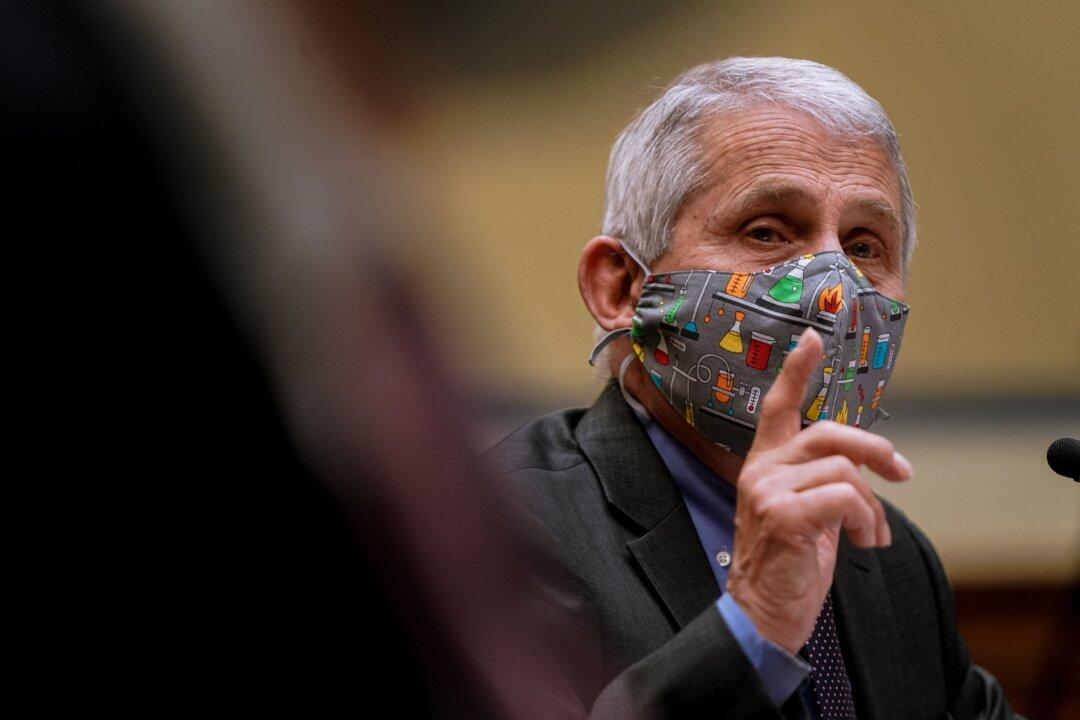Infectious disease expert Dr. Anthony Fauci said Monday that individuals who are fully vaccinated against COVID-19 “may want to go the extra mile” and wear masks to give both themselves and vulnerable people in their households an added layer of protection.
Fauci, who serves as White House advisor and director of the National Institute of Allergy and Infectious Diseases, made the remarks in a July 19 interview on PBS’s “News Hour,” during which he addressed the rise in new cases in the United States and the threat posed by the Delta variant.





